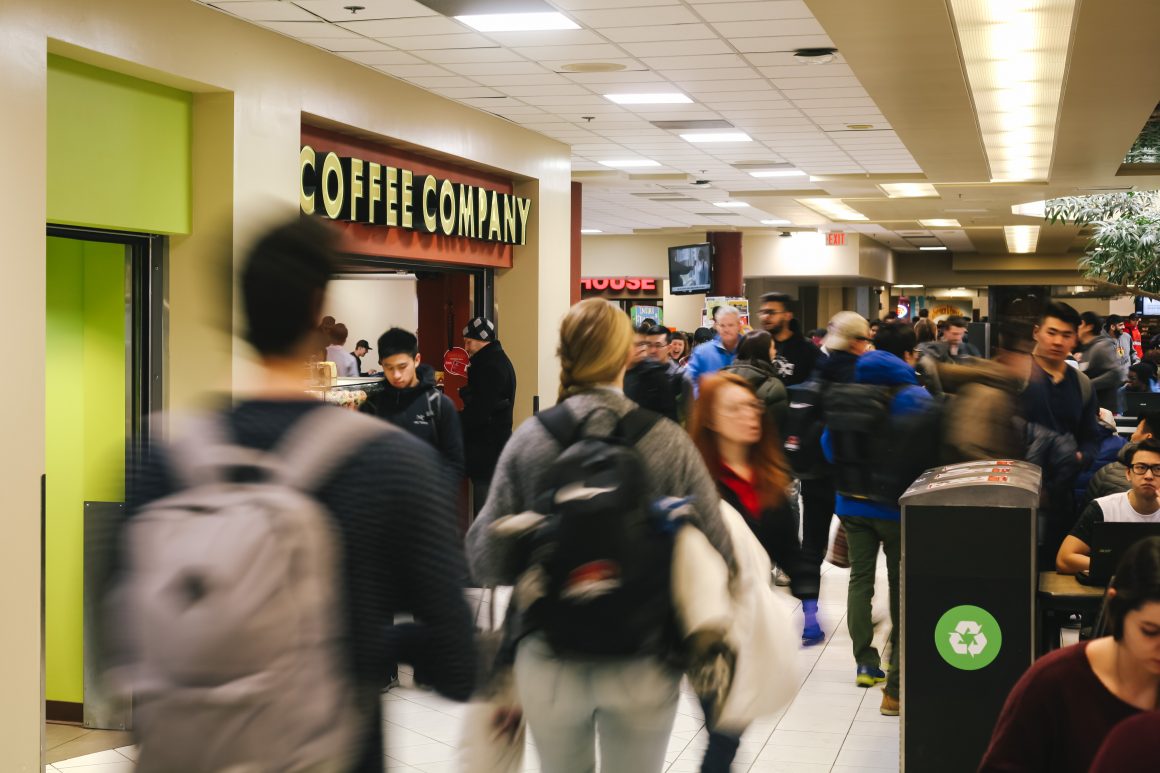
Students’ Union representative wants to improve on-campus food labelling
By Tina Shaygan, February 1 2018 —
Students’ Union arts representative Frank Finley wants to improve food labelling on campus. He also says the University of Calgary should implement a website, or another platform, to help students navigate food options available to them, among other things.
Finley said this idea is part of his plan to improve options for students with any form of dietary restrictions on campus.
“I call it food labelling or food diversity or just meeting students’ dietary needs,” Finley said.
While the SU offers halal, gluten-free, vegan and other options at its own vendors, Finley argues the choices are not enough. And when available, he says students don’t know where to find them.
“I think it is totally fair that students should be able to go to more than one or two businesses on a campus that is literally the size of some cities,” Finley said.
Finley added that he has encountered students who eat kosher who are facing difficulties on campus. For food to be considered kosher, it must be prepared under Jewish dietary guidelines.
“It is difficult to actively conduct your studies and focus on what you want to focus on when you know you have to always bring your own food and there are no options for you on campus,” Finley said. “I know a few people who eat kosher and they brought everything with them every day.”
Previously, the SU advocated to offer more halal options on campus through the work of the then-arts representative Zainab Malik. In 2015, then-arts representative Shubir Shaikh worked on creating ingredient lists for MacHall food vendors.
Finley added that he has also considered the idea of a kosher kitchen on campus as kosher food meets a variety of dietary restrictions.
“I think there is a reasonable argument to be made that everyone can go to a kosher kitchen,” he said.
SU vice-president operations and finance Ryan Wallace said ideas about improving food on campus have been around for a long time. He added that discussions of dietary restrictions should move beyond vegetarian, gluten-free, or vegan options to address halal and kosher food.
“When the SU thinks of food labelling, we’re trying to think of an encompassing term that would also be safe for people who eat halal and kosher and all that,” Wallace said.
Wallace said that a possible difficulty with implementing more food labelling is a potential legal liability due to cross-contamination.
“Is it safe to make that claim if you’re not a 100 per cent sure? I’d argue you probably shouldn’t because people really rely on it,” Wallace said.
He added that students expressed concerns that food labelling could lead to people paying less attention to their food, ultimately making the efforts counter-productive.
“A student said food labelling might actually take things in the opposite direction because people will be less inclined to ask questions about their food and less inclined to ask about where it’s from,” Wallace said.
Finley argued that this is a risk many private businesses take on.
“It is a difficult liability and I totally understand, but I think it’s still good to keep on looking [for a solution],” Finley said.
He added that while the SU can work with their own businesses, their jurisdiction over MacHall vendors has changed with the on-going MacHall lawsuit.
Food diversity has been an issue across campuses in Canada. Some universities, like the University of Toronto, have websites that explain food options such as halal. Vendors such as On the Go, La Taqueria and Stor offer diversity food options at the U of C.
Correction: A previous version of the article erroneously said Shubir Shaikh was an arts representative last year. He was actually an arts representative in 2015–16. The Gauntlet apologizes to its readers for this error.
